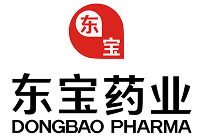Contact:
4008465777
Tonghua Dongbao: First subject enrolled in Phase I clinical trial on first Chinese-made dual-target inhibitor for gout (THDBH151 Tablets)
Dongbao Zixing (Hangzhou) Biopharmaceutical Co., Ltd. ("Dongbao Zixing"), a wholly owned subsidiary of Tonghua Dongbao Pharmaceutical Co., Ltd. ("the Company" or "Tonghua Dongbao") received the notice of approval from the Center for Drug Evaluation of the National Medical Products Administration (NMPA) for the clinical trial of its dual-target inhibitor for gout (THDBH151 Tablets). The Phase I clinical trial has been initiated, and the first subject was successfully enrolled the other day.
THDBH151 is one of the Company's key novel drugs under research for gout and hyperuricemia. The enrollment for the first subject in its Phase I clinical trial marks another solid step the Company has taken in this field, following the enrollment of the first subject in the Phase II clinical trial on the URAT1 inhibitor. The Company will accelerate the clinical trial process of THDBH151, aiming for a swift market release and offering patients more medication choices.
About Phase I clinical trial of THDBH151 Tablets
After obtaining clinical trial approval for THDBH151 from the NMPA, in accordance with relevant guidelines for China's novel drugs, Dongbao Zixing has initiated a Phase I clinical trial on THDBH151 Tablets. The primary goal is to assess the safety and tolerability of THDBH151 when orally administered once or multiple times by healthy adults on an empty stomach. The secondary goal is to determine THDBH151's pharmacokinetics and pharmacodynamics (PK/PD) profiles after single and repeated intake by healthy adults on an empty stomach and its interactions with food after a single administration by healthy adults. The trial is working out well, with the first subject enrolled recently.
About THDBH151 Tablets
There are two main treatments for gout and hyperuricemia: inhibiting uric acid production and increasing uric acid excretion. Uric acid production inhibitors include xanthine oxidase inhibitors (XOI) such as allopurinol and febuxostat. Uric acid excretion enhancers include URAT1 inhibitors such as benzbromarone, lesinurad, and probenecid. These drugs have room for improvement in efficacy and safety.
THDBH151 is a dual-target inhibitor for gout. Due to its special mechanism of action, it can both reduce uric acid production by inhibiting xanthine oxidase (XO) and increase uric acid excretion by inhibiting the URAT1 transporter in the renal tubules. This mechanism improves efficacy and reduces side effects, leading to significantly higher medication adherence. THDBH151 has the potential to become the best-in-class drug of its kind. There are no similar products available on the market in China or worldwide.
About gout and hyperuricemia
The prevalence of gout and hyperuricemia has obviously increased in China, especially among young people, in recent years. Hyperuricemia has become the fourth most common metabolic disorder, following diabetes, hypertension, and hyperlipidemia. Gout has also become the second most common metabolic disease after diabetes. According to the Chinese Guidelines for the Treatment of Hyperuricemia and Gout (2019) and data from the 6th national population census conducted by the National Bureau of Statistics, the overall prevalence of hyperuricemia in China is 13.3%, with approximately 177 million patients, while the overall prevalence of gout is 1.1% with about 14.66 million patients. A Frost & Sullivan analysis reveals that the number of people in China with hyperuricemia and gout will continue to increase, respectively reaching 239 million and 52.2 million in 2030, and the Chinese gout drug market is expected to grow to RMB 10.8 billion.










